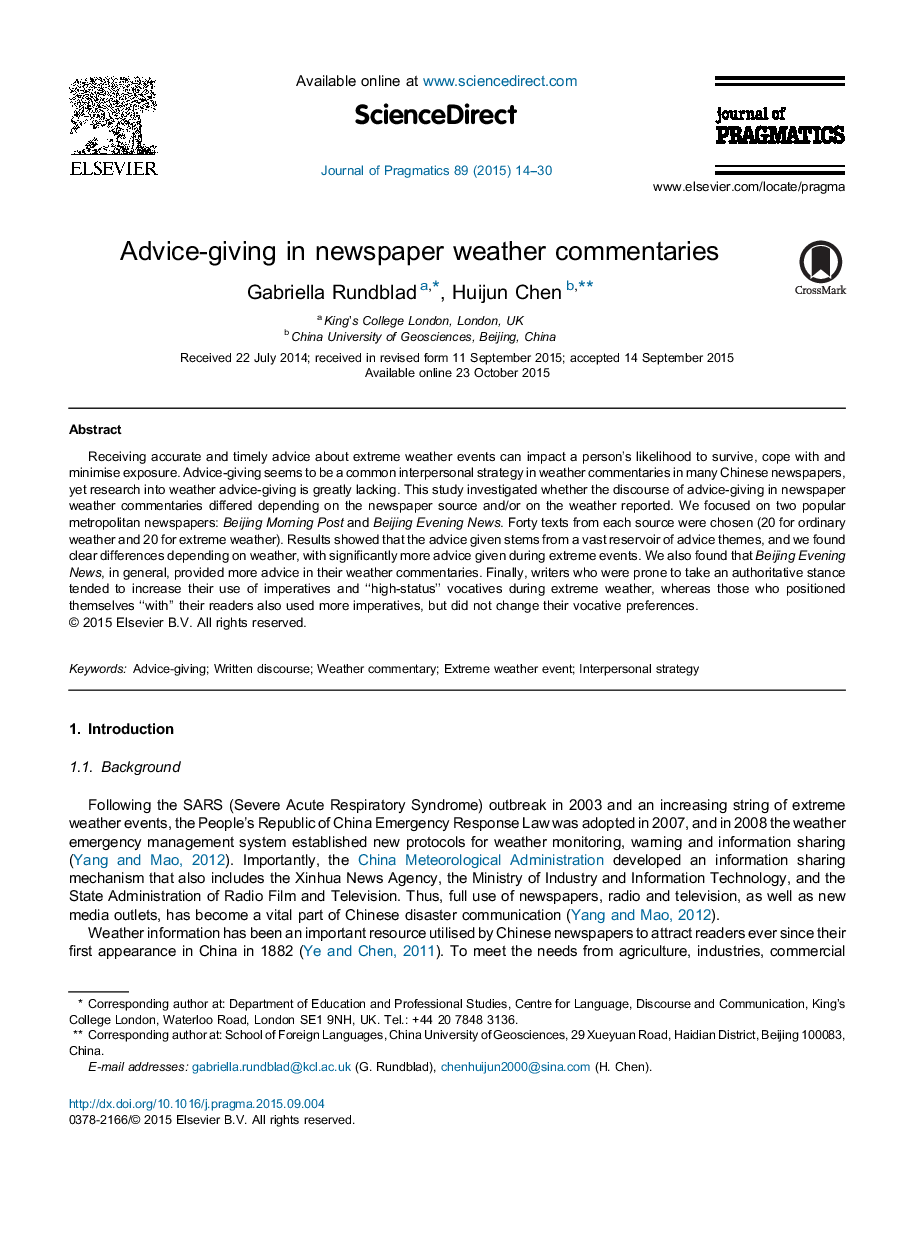| Article ID | Journal | Published Year | Pages | File Type |
|---|---|---|---|---|
| 932550 | Journal of Pragmatics | 2015 | 17 Pages |
•We compare advice-giving strategies for weather in two Chinese newspapers.•Extreme weather triggers significant changes in discourse strategies.•“High-status” vocatives are the primary device when taking an authoritative stance.
Receiving accurate and timely advice about extreme weather events can impact a person's likelihood to survive, cope with and minimise exposure. Advice-giving seems to be a common interpersonal strategy in weather commentaries in many Chinese newspapers, yet research into weather advice-giving is greatly lacking. This study investigated whether the discourse of advice-giving in newspaper weather commentaries differed depending on the newspaper source and/or on the weather reported. We focused on two popular metropolitan newspapers: Beijing Morning Post and Beijing Evening News. Forty texts from each source were chosen (20 for ordinary weather and 20 for extreme weather). Results showed that the advice given stems from a vast reservoir of advice themes, and we found clear differences depending on weather, with significantly more advice given during extreme events. We also found that Beijing Evening News, in general, provided more advice in their weather commentaries. Finally, writers who were prone to take an authoritative stance tended to increase their use of imperatives and “high-status” vocatives during extreme weather, whereas those who positioned themselves “with” their readers also used more imperatives, but did not change their vocative preferences.
